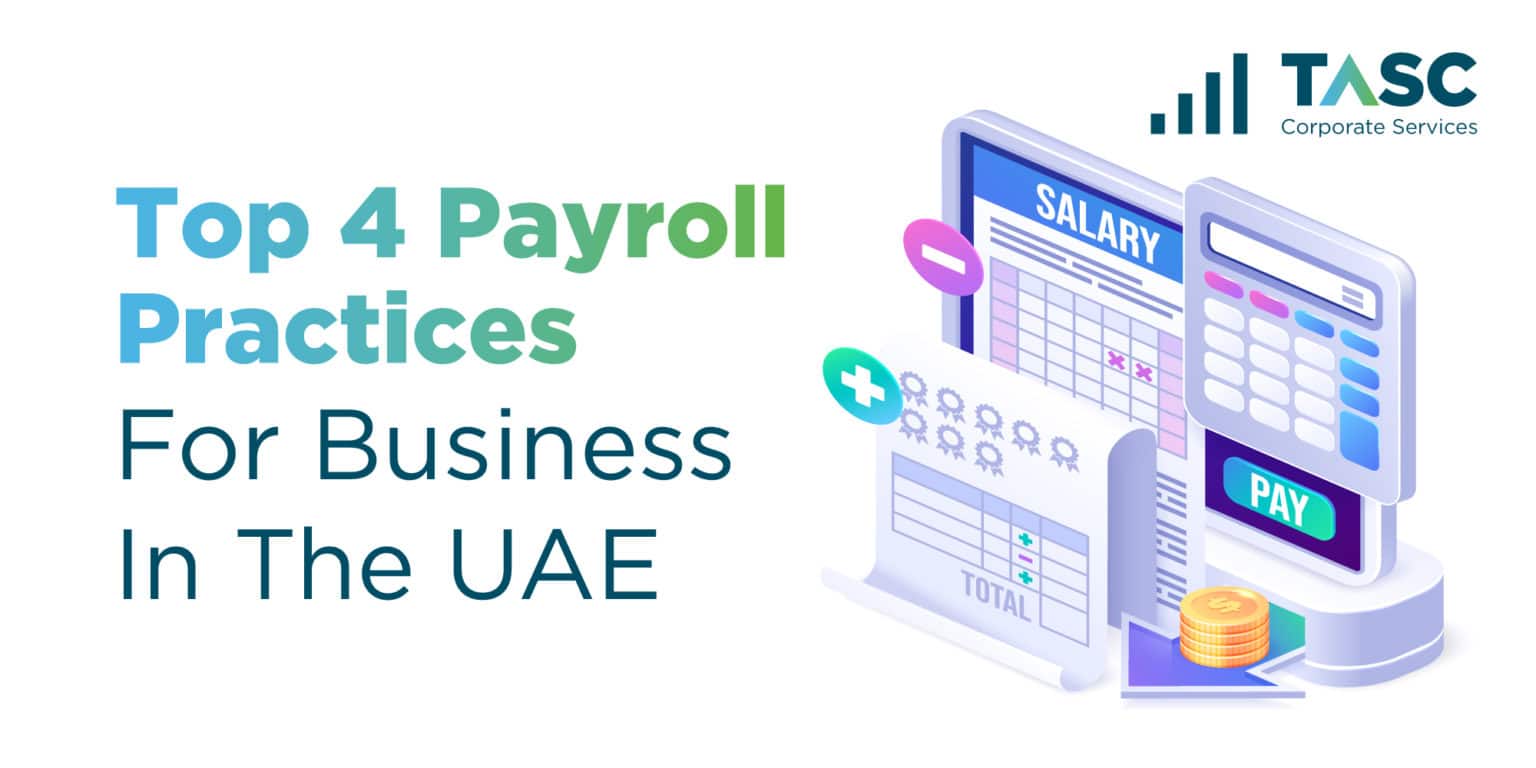As businesses in the UAE gear up for 2024, understanding the latest payroll trends is...
The United Arab Emirates (UAE) – often regarded as the ‘Gateway to the Middle East’ – has witnessed incredible growth in recent years.
With its seven Emirates, it has turned into a hotspot for global businesses. And there are a couple of reasons for it, such as a favourable tax system, free trade zones, and access to emerging markets, to name a few. Evidently, the UAE boasts a strong economy, and its credit goes to its stable financial reserves, progressive diversification policies, and increased foreign investments.
According to the World Bank, the UAE is ranked 16th out of 190 economies when doing business, slightly dropping from its 11th position in 2018. Nevertheless, the UAE remains an attractive destination for international companies.
If you’ve been thinking of setting up your business, UAE is the right location for you. However, in order to survive and thrive there, you need to know the correct way of managing payroll for small business efficiently. In this blog, we will take a closer look at payroll management in the UAE to offer you insights into the best practices that you must adopt for your business. As an entrepreneur, this information can help streamline your payroll system, ultimately keeping your employees and government happy.
How Does Payroll Processing Work in the UAE?
Payroll processing in the UAE typically involves several essential steps to ensure that employees are compensated accurately and in compliance with local regulations.
While variations will definitely exist due to the choice of payroll systems—automated, software-based, manual computation, or outsourced services—the fundamental responsibilities and procedures will continue to remain consistent.
Let’s take a look at them –
Step 1 – Maintaining or Collecting Employee Master Files
As the initial step, it demands keeping a meticulous record of employee information. Each file will have details, such as basic salary, job title, various allowances, contact information, and the types of allowances applicable to them.
It’s essential to update these files on a regular basis, especially when there are changes in employee roles or salaries.
Step 2 – Calculating Gross Salaries
The next step requires gross salary calculation, which must be calculated before the end of each salary period. The process starts with a basic salary and adding other applicable allowances.
It’s crucial to be accurate while calculating it because payment discrepancies can be an injustice to your employees.
Step 3 – Calculating Overtime Pay
Calculating overtime pay is pretty important, especially if yours is a dynamic work environment. Overtime hours, typically categorized into regular and Friday overtime, must be accurately calculated.
Step 4 – Including Additional Allowances
In the UAE, many employees are entitled to additional allowances beyond their basic salary. They can be in the form of sales commissions, bonuses, car allowances, and more. As an employer, you need to factor in these allowances when calculating your employees’ total pay. Because of this reason, having a solid employee payroll management system is absolutely necessary. If you cannot handle it in-house, you can always outsource professionals for the job.
Step 5 – Calculating Salary Deductions
There’s no doubt that salary deductions are a significant part of the payroll process. It basically covers different aspects like fines, absences, and violations. Just like calculating gross wages and allowances, it’s important to calculate deductions accurately with the help of the right formula.
Step 6 – Generating Salary Statements & Payslips
After each pay period, comprehensive salary statements or payslips need to be created for every employee. These documents are known to serve different purposes, such as providing a breakdown of salary components such as basic salary, payroll deductions, absences, overtime, and allowances.
Payslips not only act as a record of paid salaries but also help employees understand the details of their compensation.
Step 7 – Generating a WPS SIF File
It is the final step in the payroll process, where you must create a Wage Protection System (WPS) Salary Information File (SIF). There is a file format prescribed by the Ministry of Labour and is followed by all financial institutions in the UAE. You need to follow it in order to remain compliant with the government and, in turn, avoid legal issues.
What Are The Best Practices Of Payroll Management In The UAE?
Effective payroll management isn’t just about paying your employees on time. It includes regulatory compliance and accurate record-keeping to nurture positive relationships with your workforce.
So, what are the best practices you need to keep in mind to derive these results? Let’s take a closer look at them –
- Regularly Auditing Your Payroll Processes – You need to conduct regular audits of your payroll processes for excellent payroll management. It would mean a thorough review of your payroll procedures. By doing so, you’ll be able to ensure precision, deter fraud, rectify errors, and adhere to labour laws in the UAE. When you scrutinize employee details, verify pay rates and hours worked, calculate leave, reconcile payroll records with bank statements, and confirm the accuracy of employment taxes, you’ll be able to identify discrepancies and rectify them on time.
- Classifying Employees the Right Way – Accurate employee classification as per MoHRE is another essential aspect of payroll management that you absolutely cannot ignore. Misclassifying employees as independent contractors can result in substantial repercussions, such as inaccurate work permit fees and fines. Therefore, rely on trusted sources who can confirm employee classifications on your behalf and help prevent costly misjudgements in the long run.
- Accurate & Timely Corporate Tax Filing – Another essential best practice is the accurate and timely filing of corporate tax. You need to maintain a consolidated record of crucial deadlines at all times. It would include deadlines for filing taxes, processing payroll, and submitting withholdings. When you adhere to them, you successfully maintain compliance and avoid penalties.
- Training & Development for Payroll Staff – You cannot ignore the importance of training your payroll compliance staff. Because payroll regulations keep changing frequently, you must keep the team aware of all these chances. However, you can easily skip this step by hiring an experienced payroll provider in the UAE.
Outsource Your Payroll Processes To TASC Corporate Services
Efficient payroll management is a necessity for any business that wishes to thrive in the UAE. Regardless of the approach you choose to manage payroll, which can be manual, software-driven, or even through outsourcing, remember that you need a solid system in place.
If you have been thinking of outsourcing payroll, TASC Corporate Services can help. We understand the critical role of payroll management in your business’s success. So, you can expect our expert payroll consultants to offer comprehensive solutions tailored to your needs, ultimately to ensure accuracy, compliance, and peace of mind.
For more information on our payment management system, get in touch with us today!





